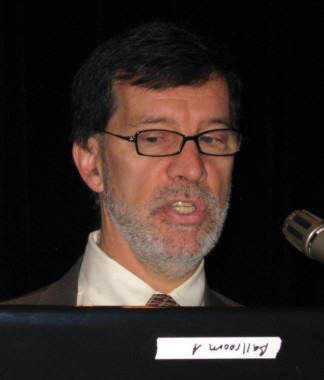The American Society of Clinical Oncology has issued three new practice guidelines related to fatigue; anxiety and depression; and chemotherapy-induced peripheral neuropathy in patients with cancer.
For fatigue, the guideline emphasizes regular screening, treatment of treatable contributing factors, and nonpharmacological interventions such as exercise and cognitive behavioral therapy, allowing for the use of psychostimulants in some patients. For depression and anxiety, the guidelines name no favored medications or regimens but stress identification of at-risk patients through regular screening, along with careful referral to treatment. The guidelines recommend duloxetine to treat chemotherapy-induced peripheral neuropathy.
The guidelines represent the first of what ASCO says is a continuing series on survivorship care. The organization cited the growing importance of managing late treatment and cancer-related effects, as cancer survivors are expected to reach 18 million in the United States by 2022, an increase of nearly 4 million from 2012.
ASCO’s anxiety and depression guideline (doi: 10.1200/JCO.2013.52.4611) derives largely from a Pan-Canadian practice guideline. For its guideline on fatigue in survivors (doi: 10.1200/JCO.2013.53.4495), ASCO integrated recommendations from existing Pan-Canadian guidelines, along with guidelines published by the National Comprehensive Cancer Network. ASCO’s guideline on chemotherapy-induced peripheral neuropathy (CIPN) is original (doi: 10.1200/JCO.2013.54.0914).
The CIPN guideline is based on a review of 48 randomized controlled trials of interventions designed to prevent or alleviate CIPN, which is "relatively distinct from other forms of neuropathic pain in many ways, including pathophysiology and symptomatology," the guideline authors noted, and affects nearly 40% of patients treated with multiple agents.
The new guideline does not recommended any agents for the prevention of CIPN, and rejects a host of agents used in other forms of neuropathic pain – including acetyl-l-carnitine, amifostine, amitriptyline, nimodipine, and vitamin E, among others – for treating established CIPN. Venlafaxine is not recommended either, though "data support its potential utility," the guideline authors acknowledged, saying that further evidence was needed. "The identification of new agents to prevent and/or treat CIPN is essential," they wrote.
Only duloxetine, also used in patients with diabetic neuropathy, is recommended for CIPN. Duloxetine may work better for oxaliplatin-induced, as opposed to paclitaxel-induced, painful neuropathy, the guideline noted, adding that more studies were necessary to confirm this.
ASCO cited three other options as acceptable to try, despite limited evidence, in patients with CIPN: a tricyclic antidepressant such as nortriptyline; gabapentin or pregabalin; and a compounded topical gel made containing baclofen, amitriptyline HCl, and ketamine. But the guideline authors stopped short of making formal recommendations for any of these, citing unproven benefit.
The fatigue guideline promotes a program of physical activity after cancer treatment, also recommending cognitive behavioral therapy and other psychosocial interventions. Yoga and other mind-body interventions are sanctioned, and the stimulant wakefulness agents modafinil and methylphenidate are given cautious recommendation with the caveat that there is limited evidence for their use in patients who have completed treatment and are disease free.
The anxiety and depression guideline stresses that all patients with cancer and who have completed treatment be evaluated regularly for symptoms of depression and anxiety, using validated measures, throughout the trajectory of care. Clinicians are asked to identify the resources available in their communities to treat these disorders.
Four of the CIPN guideline authors, Robert Dworkin, Bryan Schneider, Ellen M. Lavoie Smith, and Charles L. Loprinzi, disclosed receiving compensation or research funding from biomedical or pharmaceutical firms. Of the fatigue guideline authors, Carmelita P. Escalante, Patricia A. Ganz, Gary Lyman, and Paul Jacobsen disclosed research support. None of the depression and anxiety guideline authors disclosed conflicts of interest.


